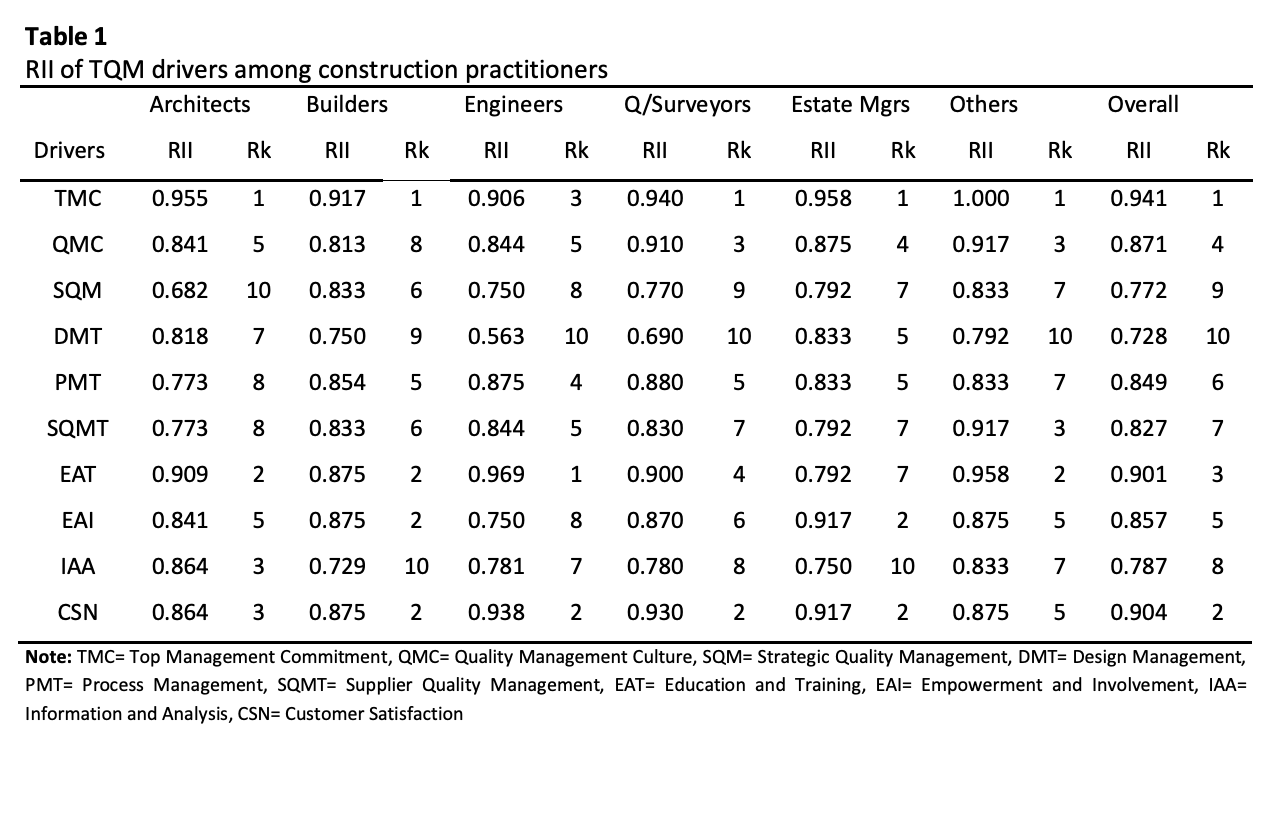Evaluation of Quality Management Drivers by Key Construction Practitioners
Keywords:
Construction, firms, quality, Total Quality Management (TQM)Abstract
The standards organization of Nigeria (SON) has been active in safeguarding the conformance of quality in Nigeria. This advocates that the pursuit of quality management is at present gaining impetus and momentum. The new environment of construction output is directly linked to the quality of construction projects, and the object of quality management practices is to produce the quality that meets the delivery requirements of construction projects. However, the Nigerian construction industry is bedeviled by incessant collapse of buildings, dilapidated structures, and poor quality of construction projects. Therefore, the objective of this paper is to investigate the major drivers of quality management practices in North-Central Nigerian construction firms involved in the ongoing federal government institution projects. 95 questionnaires were self-administered to construction practitioners in six locations: Plateau; Nasarawa; Benue; Niger; Kogi; and Abuja. The Relative Importance Index (RII) and Cross-Tabulation analysis using the SPSS software were used to analyse the data. The study revealed Top Management Commitment [1st], Customer Satisfaction [2nd], Education and Training [3rd], Quality Management Culture [4th], and Empowerment and Involvement [5th] as the most important drivers of total quality management implementation in Nigerian construction firms. The perception of each practitioner on these drivers was also revealed by the study. Finally, it was recommended that, all implementations should begin with the commitment from the leadership who are in top management, as this factor is unequivocally essential for the success of any Total Quality Management approach. Continuous improvement on quality should also be maintained in order to enhance the value of construction projects. Further studies should be carried out in residential, commercial, and state government projects.











